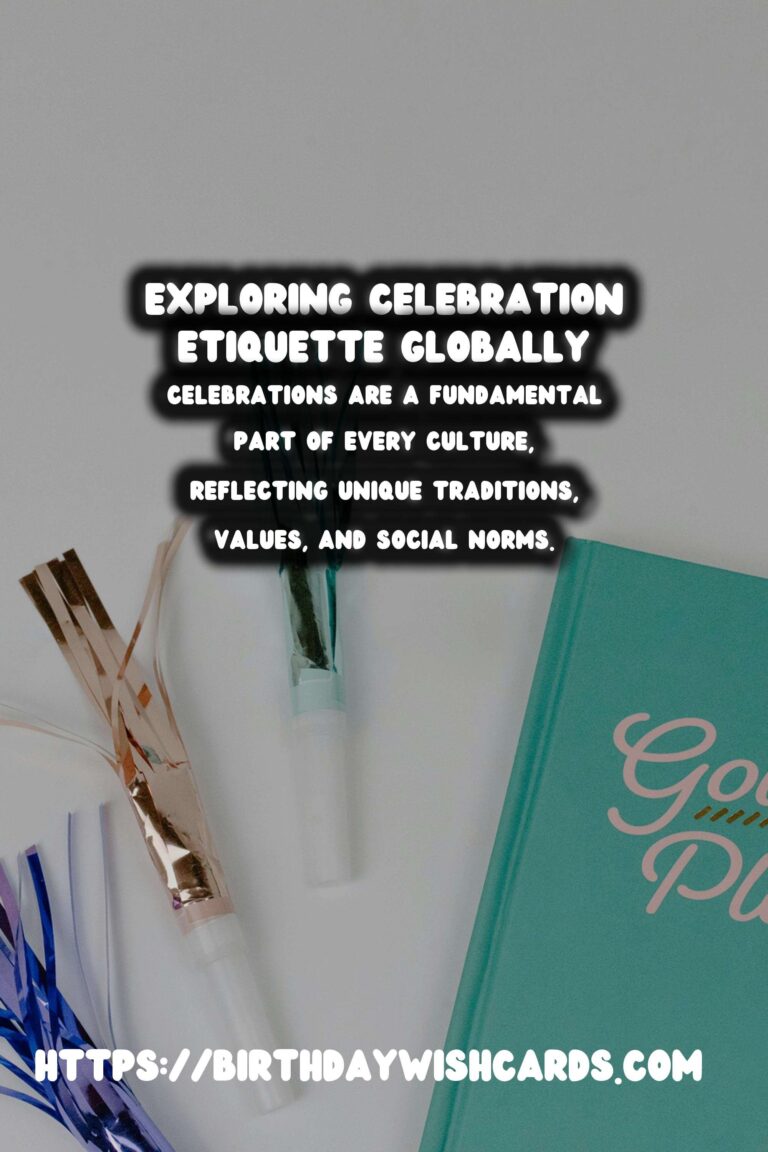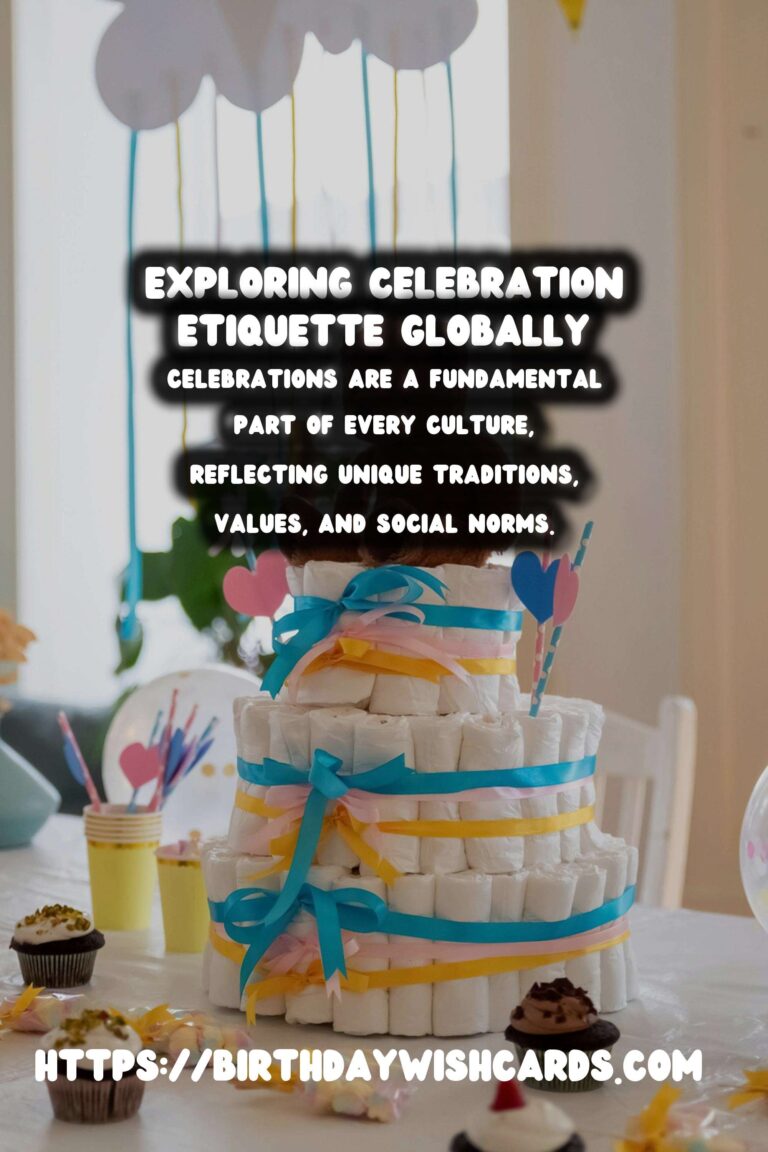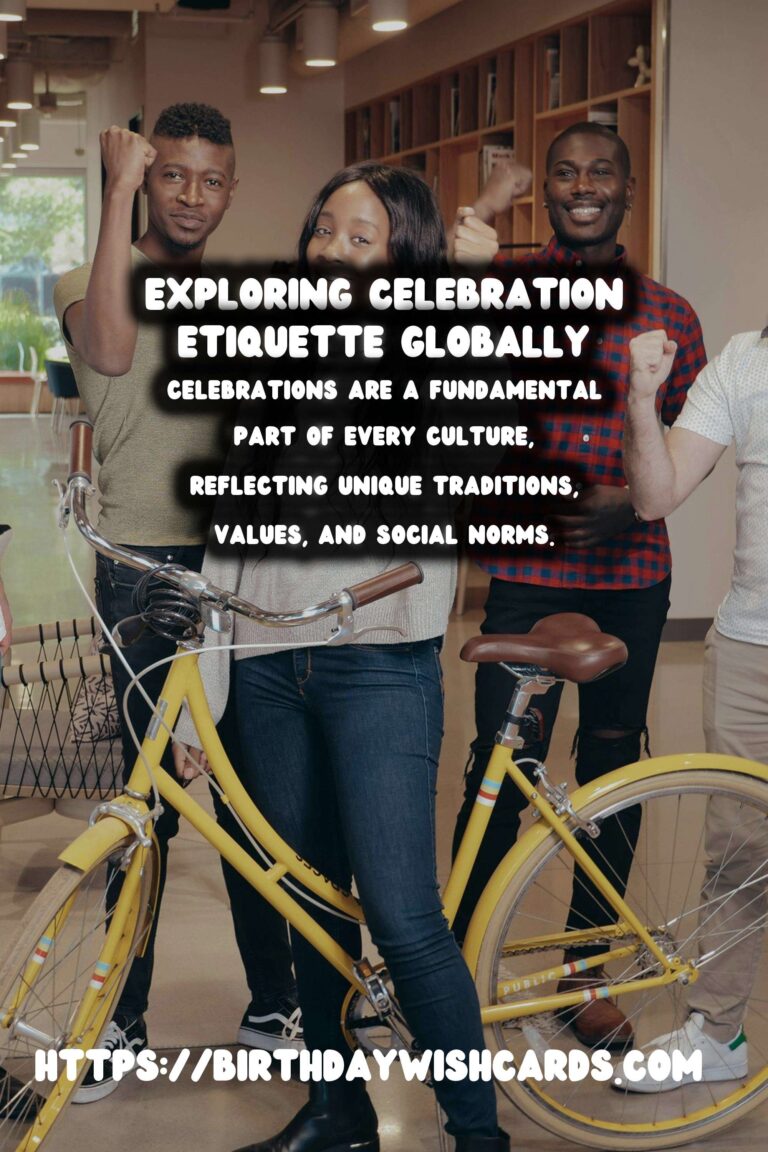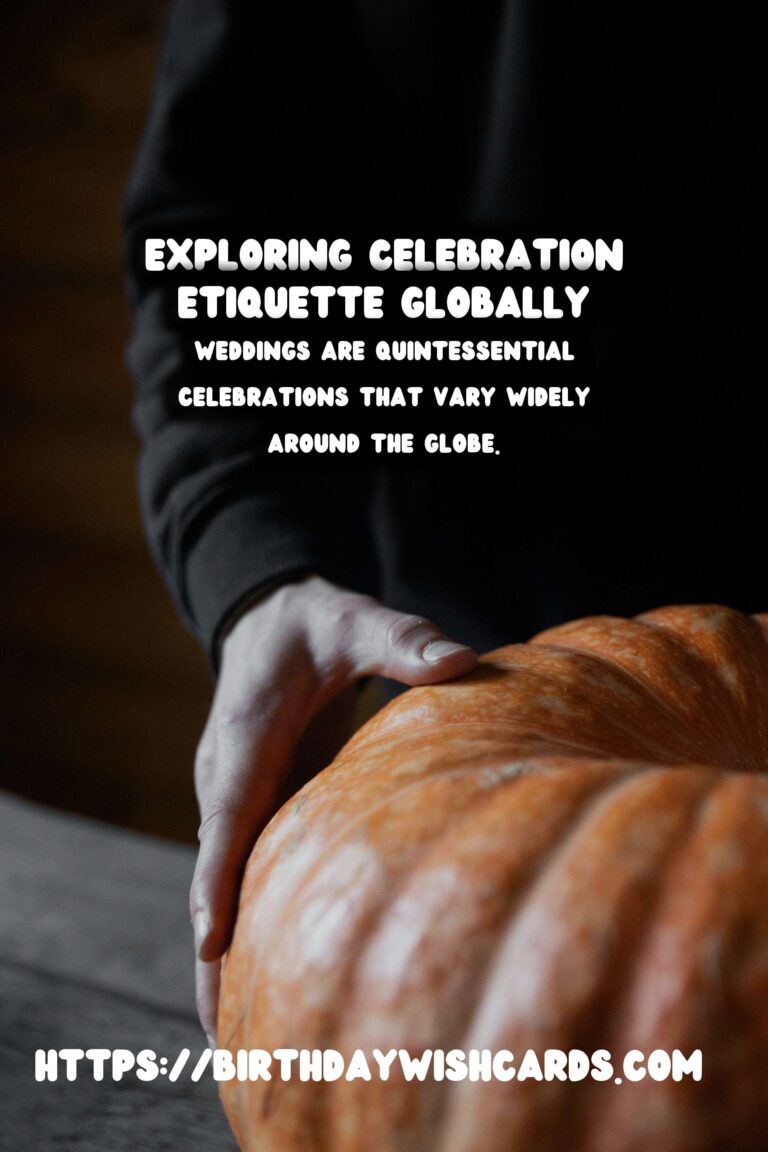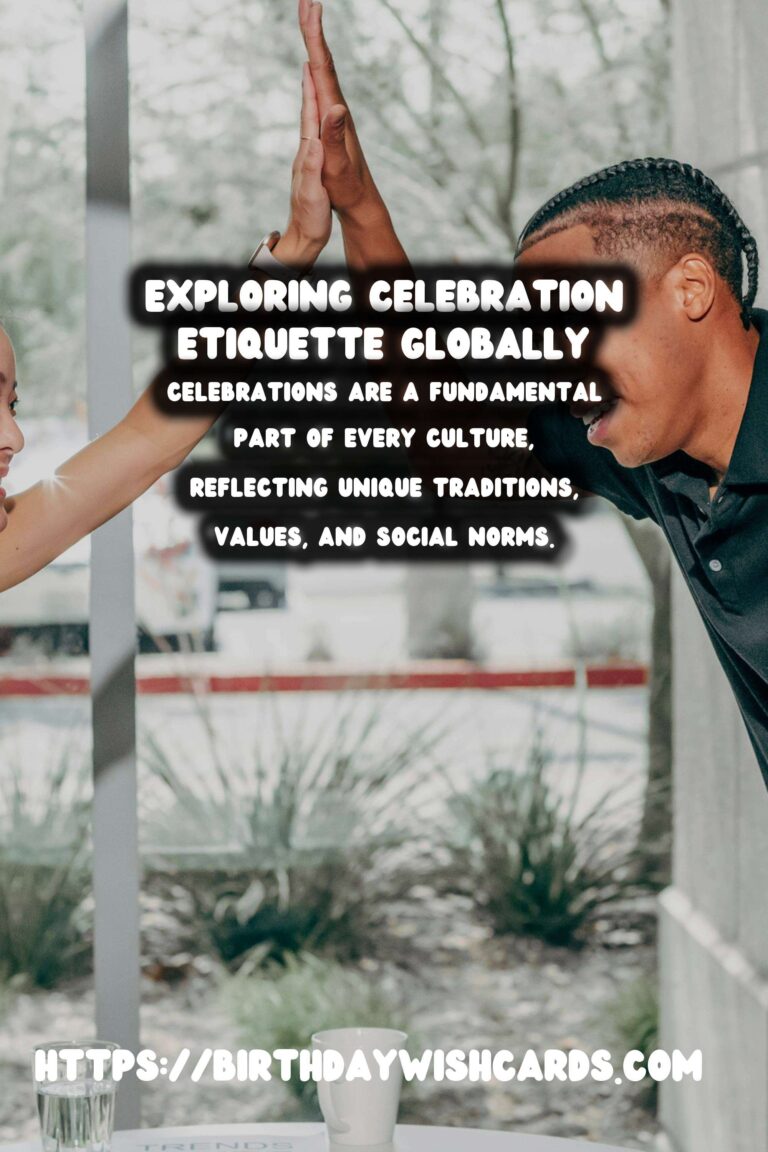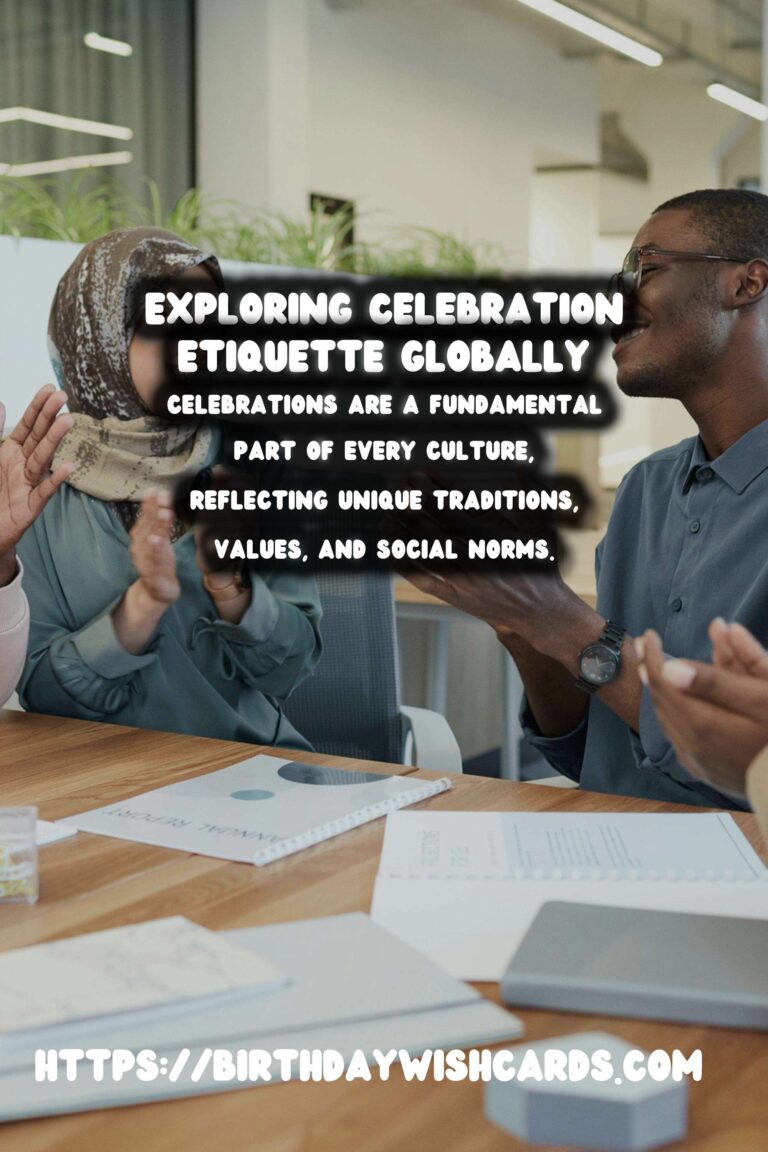
Celebrations are a fundamental part of every culture, reflecting unique traditions, values, and social norms. Understanding the etiquette surrounding these festive occasions not only enriches our experiences but also shows respect for the diverse customs of others. In this comprehensive guide, we will explore some of the most delightful celebration etiquette worldwide, shedding light on practices that shine during special events.
1. The Importance of Celebrations
Celebrations serve various purposes across cultures. They can mark significant life events such as weddings, birthdays, or anniversaries, as well as seasonal holidays and religious observances. These gatherings foster community spirit, allowing people to connect, reflect, and rejoice together.
2. Wedding Etiquette: A Cross-Cultural Perspective
Weddings are quintessential celebrations that vary widely around the globe. Each culture has its own set of rules and conventions that guests should observe. In Western cultures, for example, it’s customary to RSVP and bring a gift, typically chosen from a designated registry. In contrast, Chinese weddings often involve a tea ceremony where the couple serves tea to their elders as a sign of respect, highlighting the importance of family bonds.
2.1. Gift-Giving Rituals
When attending a wedding, understanding the significance of gift-giving is essential. In many cultures, monetary gifts are preferred, particularly in Eastern cultures where red envelopes filled with money symbolize good luck and prosperity. However, in some Western societies, personalized gifts that resonate with the couple’s interests are cherished.
2.2. Attire Considerations
Dress codes can vary dramatically from one culture to another. A traditional Indian wedding may call for vibrant attire and elaborate jewelry, while a Scandinavian wedding might prioritize more understated, formal wear. Always check the invitation for specific dress codes.
3. Holiday Celebrations and Their Unique Etiquette
Each holiday comes with its own set of expectations for behavior and participation. Understanding these can enhance the experience and show appreciation for the host’s culture.
3.1. Thanksgiving in the United States
In the U.S., Thanksgiving is a time for gathering with family and friends, sharing a meal, and expressing gratitude. Guests should arrive on time and may offer to bring a dish, but it’s important to coordinate this with the host to avoid duplication. Additionally, it’s customary to share what you’re thankful for during dinner.
3.2. Lunar New Year Celebrations in Asia
During Lunar New Year, many Asian cultures celebrate with family gatherings, feasting, and various rituals. Guests often bring gifts, but it’s best to avoid gifts that symbolize death, such as white flowers. Participating in the festive customs, like sharing drummed cookies for good luck, can also foster connections.
4. Birthday Celebrations: Traditions Around the World
While birthdays are celebrated globally, the customs and etiquette associated can differ significantly.
4.1. The Sweet 16 Ritual in North America
A ‘Sweet 16’ birthday party in North America is a significant rite of passage for a girl. Guests are often expected to bring gifts, and dress code may range from casual to semi-formal, depending on the party’s nature. Understanding the celebratory aspects of this tradition is vital.
4.2. Name Days in Greece
In Greece, celebrating one’s name day can be as significant as a birthday. The person whose name corresponds with that day’s saint is expected to host guests. It’s courteous to offer gifts, though simple tokens or well-wishes are often enough.
5. Festive Gatherings: Etiquette for Religious Celebrations
Religious celebrations often require the utmost sensitivity and understanding of traditions. Here’s an overview of some notable religious observances.
5.1. Eid Celebrations in Muslim Cultures
During Eid, Muslims celebrate with prayers, feasting, and giving charity. Guests are expected to dress modestly and greet hosts with “Eid Mubarak” (Blessed Eid). It’s customary to reciprocate hospitality if invited to a feast.
5.2. Diwali in India
Diwali, the festival of lights, is celebrated with great enthusiasm in India. When attending a Diwali celebration, it’s polite to dress in festive attire, share sweets, and exchange gifts. It’s also traditional to join in the lighting of diyas (lamps).
6. Conclusion: Embracing Global Celebration Etiquette
Understanding celebration etiquette is an essential part of experiencing the richness of global cultures. Whether attending a wedding, participating in a holiday feast, or celebrating a milestone birthday, being aware of the customs involved not only enhances your experience but also fosters goodwill and respect among diverse populations. By adhering to these guidelines, we can ensure that our participation in celebrations around the world shines brightly and harmoniously.
Celebrations are a fundamental part of every culture, reflecting unique traditions, values, and social norms. Weddings are quintessential celebrations that vary widely around the globe. 
